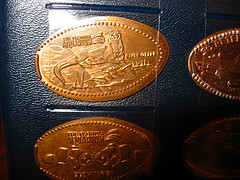Knowing Your Coin Collection Value

Knowing Your Coin Collection Value
Back in the olden days, people hoarded coins for the sole reason of the value they can get from them. Centuries later, people transformed that mindless activity into an elite art called coin collecting. These days, more and more people are taking an interest in numismatics and realizing the potential of investing in coins. If you’re a beginner at coin collecting, it is only wise that you read up on your new hobby and find out everything there is to know about it, including how to determine your coin collection value.
Numismatics refers to the science of studying coins using a legislative, economic, metrological, and artistic point of view. Coin collecting, on the other hand, refers to the hobby of collecting or gathering coins for the purpose of selling or trading them for their value or simply for keeping and displaying them for personal satisfaction. While the two terms are different, they are often used interchangeably and thought to have the same meaning. In this aspect, both numismatics and coin collecting have an interest in the value of a coin - or at least its closest estimate.
As a rule, a coin must be examined physically so that its authenticity, grade, and other issues need to be settled can be determined, prior to the establishment of its total and real value. Naturally, like every other thing in this world, a coin is only worth whatever amount someone is willing to pay for it, but to arrive at this amount, a variety of factors must be carefully taken into consideration. Your coin collection value will thus depend on these factors, which include proper identification of the coin, assurance of its authenticity, its grade, and its overall appearance.
Proper identification of a coin involves taking a look at its face value, the date and the mintmark, and naming the country or government that issued that particular coin, as well as the design used and the year it was in circulation (some serious coin collectors are very particular about the period in which a coin has been circulated). Normally, the information afore-cited can be verified without much difficulty so that proper identification is the easiest stage in assessing a coin’s value. However, while a coin in top condition finds much favor, you should not be quick to clean or repair your damaged coin. Coin collectors go for coins that have not been tampered with because tampering, which includes cleaning and polishing, takes away some of the coin’s authentic appeal.
Since there is money in coin collecting, many people have attempted to sell fake coins. Even to this day, there are several fake coins still out there, and what you find might not be as genuine as you’d like it to be. Thus, one of the most important things you need to check right away when you have a coin in possession is its authenticity. There are a number of counterfeits and alterations of different kinds and types of coins that you really have to be careful and examine your discovery.
Related posts:
- Knowing Your Coin Value Knowing Your Coin Value One of the most enjoyable parts of coin collecting is learning about coin values. After all, as enjoyable as coin collecting is on its own, seeing...
- Knowing More About Canadian Coin Collecting Prices Knowing More About Canadian Coin Collecting Prices It is common knowledge that people in Canada use different types of Canadian coins each and every day of their lives. These coins...
- Antique Collection and Coin Collection Rolled into One Antique Collection and Coin Collection Rolled into One Coin collecting is a fun activity and it has been very popular because it does not only serve as a hobby but...
- What makes a coin collection complete? What makes a coin collection complete? Coin collecting is a great “disease” whose treatment is to find out as much as you can about the hobby and make yourself feel...
- Anyone Can Start A Coin Collection Anyone Can Start A Coin Collection People of all ages are getting hooked with their coin collections. As a matter of fact, even the children are participating actively in colleting...
